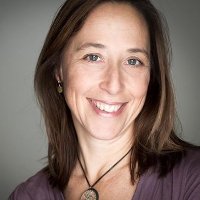Imposter Syndrome is Definitely a Thing
The feeling that you don’t belong can make it harder for graduate students to finish school. This article provides tips to advisors for combating imposter syndrome.
The feeling that you don’t belong can make it harder for graduate students to finish school. This article provides tips to advisors for combating imposter syndrome.
Although there are not enough tenure-track jobs to match the supply of new STEM Ph.D.s, discouraging students from pursuing graduate school would disproportionately affect women and underrepresented minorities.
UW-Madison engineering professors have found that flipped classrooms allow students to better interact with the material during class time.
If you are looking for ways to get feedback from your students on their learning and your teaching effectiveness, providing a feedback survey at the mid-quarter is one recommendation. To help facilitate this, CEILS has developed a “questionnaire template” with approximately 20 questions. You can use the resource “as-is” or customize for your course. Simply copy the questionnaire into your course, edit/add any questions, and adjust the settings to suit your needs. Once added, this resource is private to your course and just for you and your students to view and participate.
PREVIEW the CEILS Mid-Quarter Course Evaluation
VIDEO TUTORIAL: Customizing the CEILS Mid-Quarter Course Evaluation in CCLE
The University of California Berkeley’s Lawrence Hall of Science and the Center for Teaching and Learning received an NSF IUSE grant to improve student achievement in STEM undergraduate courses through statewide transformation of college level teaching. STEM faculty from 2- and 4-year institutions participate in the Faculty Learning Program together to learn and improve their instructional practice, and build relationships and understanding of one another’s teaching and learning contexts. UCLA, along with local community colleges with high transfer rates have been expressly asked to participate in this statewide program.
For more information on this program and what is expected, please find more information summarized on one page here: Faculty Learning Program
We encourage anyone interested to contact Rachel Kennison at rkennison@ceils.ucla.edu.
Thank you!
A new report outlines the state of STEM education for minority students and what HBCU’s do to produce successful STEM professionals.
The stigma associated with pursuing alternative career paths may be discouraging scientists from wanting to engage the public in matters of science.
The charts and figures in this interactive article show the increasing diversity of today’s students in higher education.
Higher education is a critical engine of social mobility and economic development for our country. For students, earning a postsecondary degree or credential is the surest pathway to economic opportunity and the chance to lead a healthy, productive life.
Today’s college students are more diverse than ever before. They are older students who may be juggling other responsibilities such as work and family. They are first-generation college-goers and students from low-income families who have high hopes but face new and unfamiliar challenges. And they are students of color who have gotten to and through college at lower rates than their white peers.
To help more Americans achieve their dreams and to build a stronger economy for all of us, we need to better understand who our students are and what they need to succeed. READ MORE.

Rachel received her BA from Sarah Lawrence College, MS in Clinical Social Work from Columbia University and her PhD in Biology from UCLA in 2008. Her graduate research focused on studying the structure and function of southern California estuaries, and the patterns of nutrient availability and macroalgal blooms. Her overriding goal was to further her passion for communicating science to a broad audience, teaching and mentoring and working with underrepresented students in science to improve the pipeline to higher education. After graduating she worked as Co-Director for the Centers for Ocean Science Education Excellence-West, a program connecting K-12 teachers with marine scientists and implementing cutting edge research into the K-12 classroom.
Rachel teaches the Career Development for Life Science Majors course (LS 110), exposing students to a variety of career opportunities in the sciences and featuring UCLA faculty and alumni speakers from various industries. Additionally, Rachel runs all of the programming for the CEILS CIRTL (Center for the Integration of Research, Teaching, and Learning) program. CIRTL provides professional development opportunities for future faculty (graduate students and postdoctoral scholars) interested in academic careers at the intersection of research and teaching.
Rachel can be contacted at rkennison@ceils.ucla.edu.
A number of studies suggest that student evaluations of teaching are unreliable due to various kinds of biases against instructors. Yet conventional wisdom remains that students learn best from highly rated instructors. What if the data backing up conventional wisdom were off? A new study suggests that past analyses linking student achievement to high student teaching evaluation ratings are flawed, a mere “artifact of small sample sized studies and publication bias.”
Read the whole article featured in Inside Higher Education here.
Find the study here: http://dx.doi.org/10.1016/j.stueduc.2016.08.007
